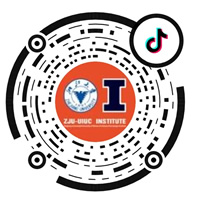Recently, we received good news from the Asian Conference on Machine Learning (ACML), one of the important regional international conferences in the field of machine learning. Assistant Professor Meng Xiangming of ZJUI, won the Best Paper Runner- Up Award with the collaborative paper "Diffusion Model Based Posterior Sampling for Noisy Linear Inverse Problems". The paper was co-authored by Professor Yoshiyuki Kabashima at the Department of Physics and the Institute for Physics of Intelligence, The University of Tokyo. This paper was published in the authoritative paper collection "Proceedings of Machine Learning Research" (referred to as PMLR) where the papers have undergone strict review and editing processes to ensure academic value and reliability. PMLR has collected the essence of top-level conferences such as the International Conference on Machine Learning (ICML) and the Conference on Neural Information Processing Systems (NeurIPS) and is committed to providing high-quality and real-time updated paper resources for academia and industry and accelerating the development of machine learning theory and practice. (Information source: PMLR official website)
▲ Award Certificate
With the rapid development of diffusion models and flow-based generative models, the use of generative models to solve noisy linear inverse problems (such as super-resolution, deblurring, denoising, image coloring, etc.) has attracted widespread attention. Although these methods have made significant progress in reconstruction performance, most of them rely on the classic framework of diffusion posterior sampling (DPS), which requires estimating the likelihood score function by repeatedly using backpropagation to calculate gradients, severely limiting inference speed. To address this issue, this paper proposes a novel fast and effective solution called DMPS. By introducing the Non-informative Prior assumption, a simple closed-form approximation of the likelihood score function is proposed, which avoids complicated backpropagation gradient calculations. Meanwhile, the paper also proposes a unified framework for diffusion models and flow models, effectively simplifying the algorithm design of different generative models for linear inverse problems. The paper conducted extensive experiments on various noisy linear inverse problems (such as super-resolution with noise, denoising, deblurring, and image coloring) and different datasets (such as FFHQ and CelebA HQ). The experimental results showed that the proposed DMPS exhibited highly competitive and even better reconstruction performance, while significantly faster (2-3 times) than the corresponding baseline methods.
▲ Typical results for different image restoration tasks on CelebA-HQ 256×256 validation set, along with the average inference time in seconds
Source-code Link:https://github.com/mengxiangming/dmps

Dr. Meng Xiangming, Assistant Professor at ZJUI
Dr. Meng Xiangming is an Assistant Professor at ZJUI. He obtained his Ph.D. in information and communication engineering from Tsinghua University in 2016 and B.Eng in communication engineering from Xidian University in 2011.
Dr. Meng Xiangming’s research interests mainly include probabilistic machine learning, approximate Bayesian inference, and learning algorithms, including probabilistic generative models such as diffusion models and their applications in various inverse problems. The relevant research results have been published as the first author in top international journals and conferences such as NeurIPS, ICML, ICLR, AAAI, AISTATS, IEEE JSAC, etc. In addition, he has been invited to serve as the Area Chair for NeurIPS, ICML, and ICLR, three top conferences in machine learning. He has also served as a reviewer for several top journal conferences, including Statistics and Computing, IEEE TCOM, IEEE TIT, NeurIPS, ICML, ICLR, CVPR, AAAI, AISTATS, and has been honored as an Outstanding Reviewer for ICLR 2022.







